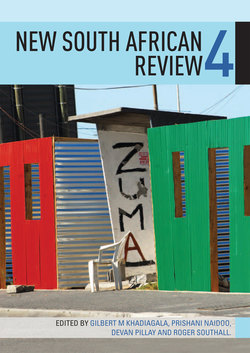Читать книгу New South African Review 4 - Devan Pillay - Страница 6
На сайте Литреса книга снята с продажи.
THE FOUNDATIONS OF DEMOCRACY
ОглавлениеThe negotiations which culminated in South Africa’s transition to democracy in 1994 had proceeded along two tracks. Most famously, the political actors involved, led principally by the ANC and the National Party (NP), reached an agreement (albeit after tortuous contestations) which saw the ‘new South Africa’ emerge as a constitutional state – one whereby the government and people would ultimately be subject to the values and procedures laid down by a constitution. Equally significant, however, were related discussions between business and the ANC (recognised as the incoming government) which linked the transition from white minority to black majority rule to de facto acceptance of free-market capitalism. Although the terminology was to be downplayed – for many within the liberation movement looked forward to a rapid transition to socialism – South Africa from 1994 was to become a capitalist democracy – one in which the ANC would be enabled to hold political power whilst, in the beginning at least, the existing white elite retained economic power. Yet in recognition of the popular forces in play – notably as represented by the Congress of South African Trade Unions (Cosatu) – this capitalist democracy was to be characterised by a social compact between business, the state and labour which embodied hopes that the conflicted economy of the past, characterised by bitter struggles between capital and labour, could be replaced by one founded upon mutual cooperation. Although the resulting deals are often depicted as an ‘elite compromise’, implying cynical backroom, self-interested bargains struck between old and new elites to limit the extent to which the ANC would be able to democratise (and socialise) the economy, they were arguably necessary. Without them it is unlikely that the political settlement would have been secured at that point; with them, the productive capacity of large-scale capital could hopefully be mobilised and re-oriented to serve the needs of all South Africa’s people.
The settlement was intended to provide the basis for democracy. How should we assess its success?
